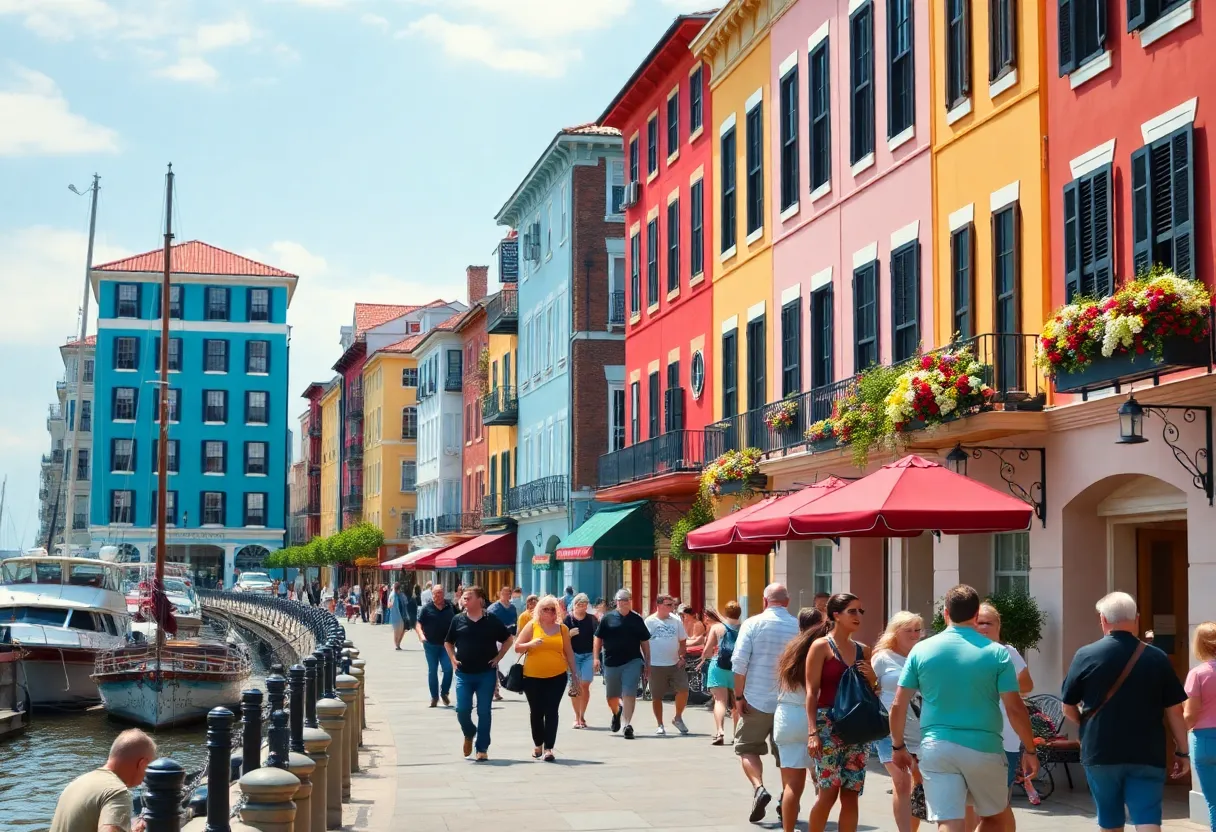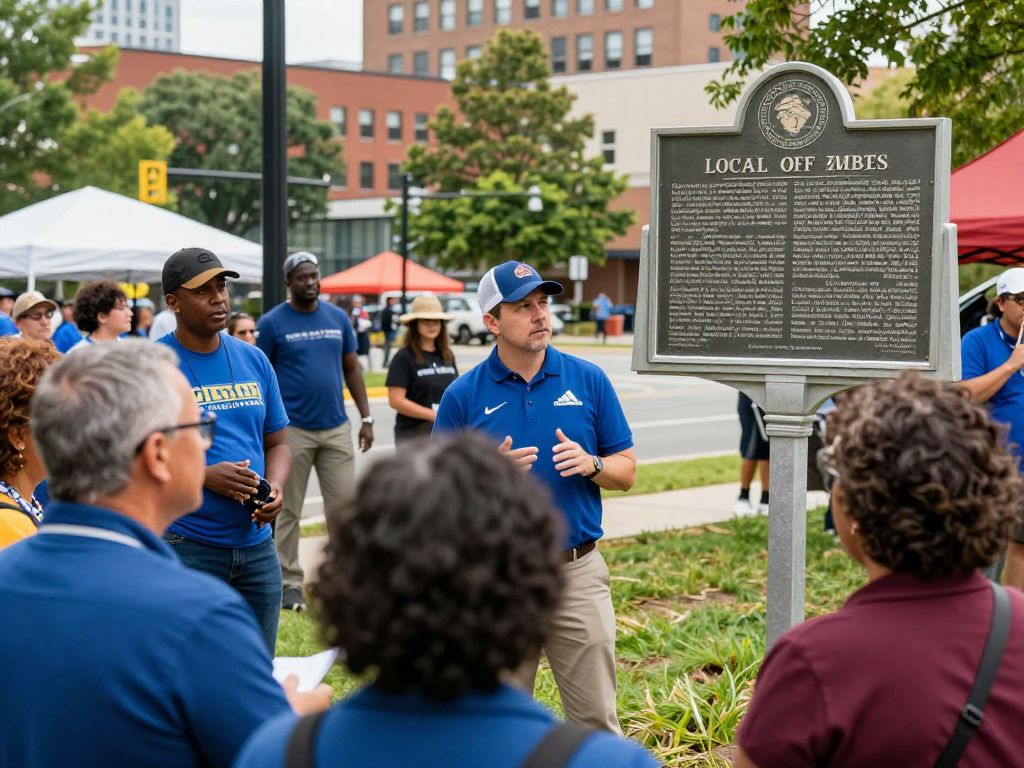News Summary
Charleston’s tourism sector has achieved a remarkable economic impact of $14.03 billion in 2024, reflecting a 7.1% increase from last year. This growth is attributed to higher visitor spending, reaching an average of $1,105, and an increase in tourism-related employment, which saw 54,900 jobs created. Meanwhile, approximately 7.89 million visitors explored the city, emphasizing Charleston’s enduring appeal with its historical sites and vibrant culture. However, the city also faces challenges in managing the increasing tourist influx while preserving its charm.
Charleston
Charleston’s tourism industry has reached new heights, generating a record economic impact of $14.03 billion in 2024. This figure marks a 7.1% increase from the previous year and underscores the city’s continued popularity as a travel destination. The estimated number of visitors arriving in Charleston during the year was approximately 7.89 million, leading to significant economic benefits for the region.
The increase in economic impact can be attributed in part to higher spending per visitor. The average spending per visitor rose to $1,105, a 5.5% rise from 2023. Notably, tourism accounted for 23.5% of all sales in the Charleston area, highlighting its vital role in the local economy.
The tourism sector, which employed 54,900 people—marking the highest employment level recorded—witnessed the opening of about 1,200 job opportunities in 2024. Hotels in Charleston also experienced a robust performance, selling nearly 4.94 million room nights and achieving a 70.6% average hotel occupancy rate. The average daily rate for hotel rooms increased to $186.
Visitor Statistics and Trends
While the total number of visitors to Charleston increased by a modest 1.2%6.29 million passengers reported. The majority of tourists hailed from neighboring states, with North Carolina, Florida, and Georgia being the top sources of visitors. Notable metropolitan areas contributing to this influx included Charlotte, Atlanta, and New York City.
Charleston’s Appeal
Charleston’s appeal as a tourist destination is multifaceted, including its rich historic sites, vibrant food scene, diverse shopping options, picturesque waterfronts, lively festivals, and abundant outdoor recreation opportunities. These factors not only attract visitors but also create a dynamic local economy that benefits from tourism.
Challenges and Future Considerations
Despite the impressive growth in tourism, Charleston faces challenges related to increased visitation. The city is actively seeking ways to balance the benefits of tourism with potential issues arising from the influx of visitors. This ongoing effort is crucial to maintaining the city’s charm and quality of life for both residents and tourists alike.
Research Insights
The data on Charleston’s tourism economy was compiled by the College of Charleston’s Office of Tourism Analysis, which provides valuable insights into trends and developments in the local tourism sector.
Charleston’s record tourism numbers and economic impact suggest a thriving industry that continues to grow despite some challenges. As the city moves forward, understanding these trends will be key to sustaining its attractiveness and handling the demands of a bustling tourism environment.
Deeper Dive: News & Info About This Topic
HERE Resources
Charles Wadsworth, Chamber Music Pioneer, Passes Away
South Carolina Lawmakers Consider Reforms to Liquor Liability Laws
Charleston to Host Food & Wine Classic
Second Annual Food & Wine Classic Scheduled in Charleston
South Carolina Reveals Ambitious Manufacturing Strategy
South Carolina Sees Remarkable Growth in Tourism Sector
South Carolina’s Vision for Manufacturing Growth
Spoleto Festival USA Kicks Off in Charleston
South Carolina Named Fastest-Growing State in the U.S.
Charleston County Seeks Consultation After Tax Referendum Failure
Additional Resources
- Charleston Business: Charleston Tourism Growth 2024 Impact
- ABC News: Charleston Tourism Reaches New Heights
- Travel and Tour World: Charleston Tourism Boom
- Wikipedia: Tourism in the United States
- Encyclopedia Britannica: Tourism

Author: STAFF HERE CHARLESTON
The CHARLESTON STAFF WRITER represents the experienced team at HEREcharleston.com, your go-to source for actionable local news and information in Charleston, Charleston County, and beyond. Specializing in "news you can use," we cover essential topics like product reviews for personal and business needs, local business directories, politics, real estate trends, neighborhood insights, and state news affecting the area—with deep expertise drawn from years of dedicated reporting and strong community input, including local press releases and business updates. We deliver top reporting on high-value events such as the Spoleto Festival USA, Charleston Wine + Food Festival, and the MOJA Festival. Our coverage extends to key organizations like the Charleston Metro Chamber of Commerce and the Charleston Museum, plus leading businesses in tourism and maritime industries that power the local economy such as South Carolina Ports Authority and the Charleston Visitor Center. As part of the broader HERE network, including HEREaiken.com, HEREbeaufort.com, HEREchapin.com, HEREcharleston.com, HEREclinton.com, HEREcolumbia.com, HEREgeorgetown.com, HEREgreenwood.com, HEREgreenville.com, HEREhiltonhead.com, HEREirmo.com, HEREmyrtlebeach.com, HEREnewberry.com, HERErockhill.com, HEREspartanburg.com, HEREaustin.com, HEREcollegestation.com, HEREdallas.com, HEREhouston.com, and HEREsanantonio.com, we provide comprehensive, credible insights into South Carolina's dynamic landscape.





